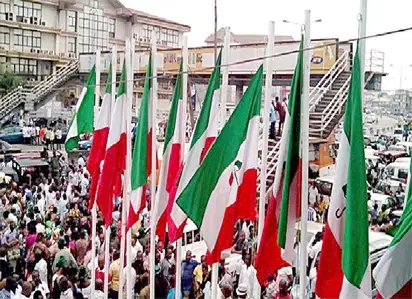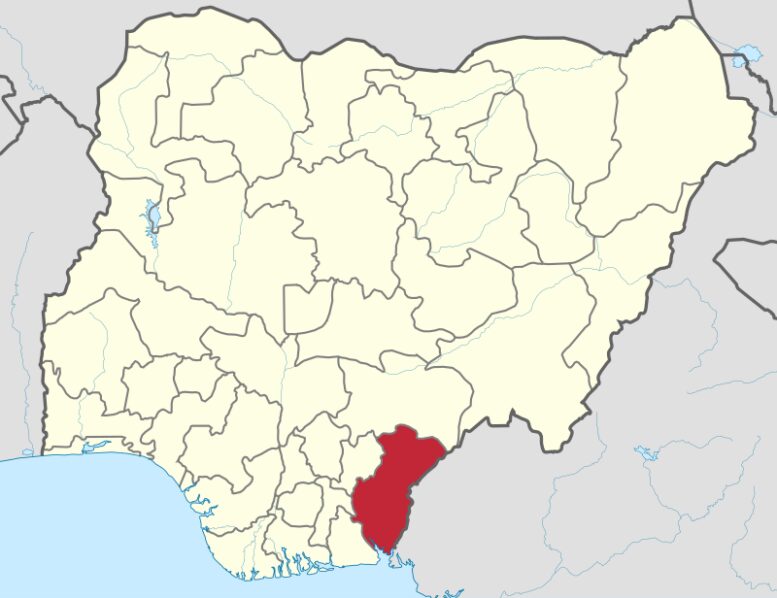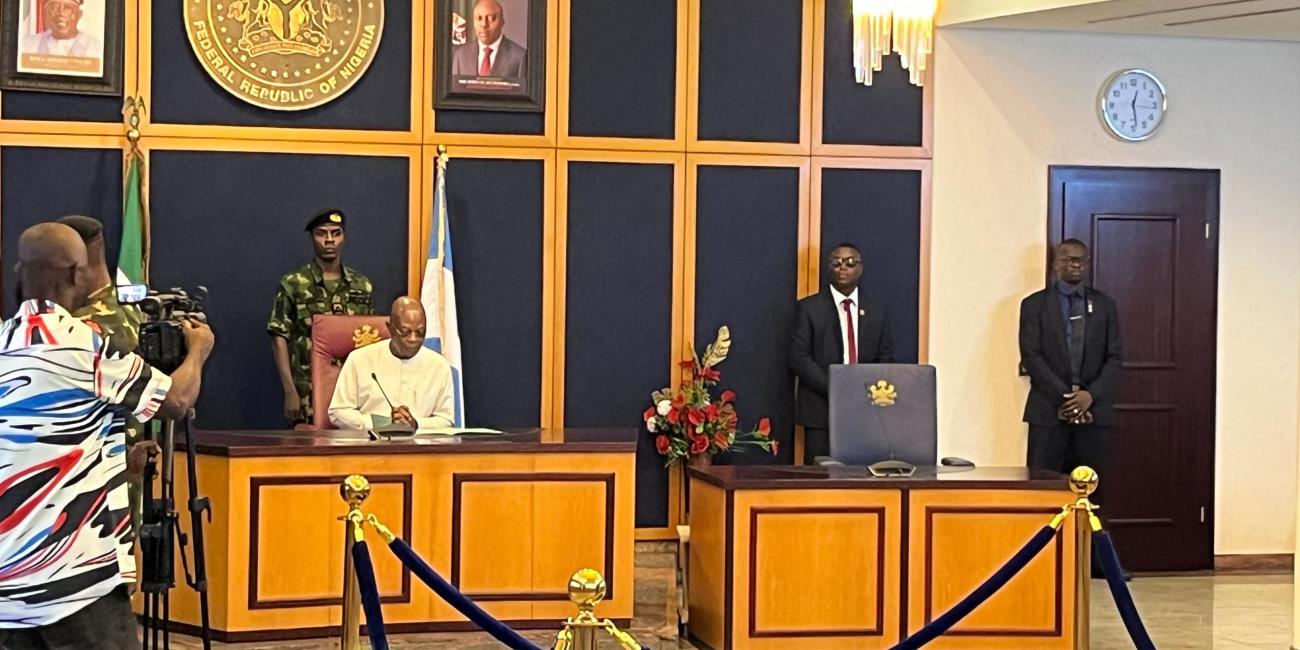The ongoing battle for control in Rivers State has taken a dramatic legal turn, as governors of the Peoples Democratic Party (PDP) have dragged President Bola Ahmed Tinubu and the National Assembly to the Supreme Court. Their challenge? The controversial six-month suspension of Governor Siminalayi Fubara, his deputy Ngozi Odu, and the Rivers State House of Assembly, along with the unprecedented appointment of a Sole Administrator to govern the oil-rich state.
A Constitutional Crisis Unfolds
In their lawsuit, the PDP governors argue that the President’s actions violate Sections 1(2), 5(2), and 305 of the 1999 Constitution (as amended). They contend that the legal framework Tinubu relied upon does not grant him the authority to unilaterally suspend an elected state government, making the entire process unconstitutional.
The governors have urged the Supreme Court to declare the suspension of Fubara and his administration unlawful, reinstate the elected government, and issue an order preventing the President from taking similar actions against any other governor, particularly those not aligned with the ruling All Progressives Congress (APC). They are also calling for the immediate nullification of the appointment of a Sole Administrator, arguing that such a move undermines democracy and state autonomy.
Furthermore, the governors have taken issue with the National Assembly’s role, questioning the legitimacy of the approval process for the state of emergency. They argue that the Constitution mandates a two-thirds majority vote from both legislative chambers, yet the approval was hastily passed via a voice vote, rendering it invalid.
A Power Struggle at the Heart of Nigerian Federalism
The PDP’s legal battle underscores a growing power struggle between the federal government and opposition-controlled states. The APC, which once championed true federalism and power devolution, appears to be centralizing authority instead. The 2017 El-Rufai-led committee on federalism had recommended significant power transfers to the states, including greater control over policing and resource management—proposals that have since been shelved.
Political analysts suggest that at the core of the Rivers State crisis is a battle over state resources and revenue distribution. Chief Peter Ameh, National Secretary of the Coalition of United Political Parties (CUPP), warned that unless these constitutional issues are resolved, similar power grabs may occur in other opposition-controlled states.
Calls for Reform and a Return to True Federalism
Amid the unfolding crisis, calls for constitutional reforms have intensified. The Civil Society Legislative and Advocacy Centre (CISLAC) argues that meaningful devolution of power remains unlikely under the current administration due to its firm grip on the National Assembly.
“Unfortunately, there is nothing that can happen in the ongoing constitutional amendment outside of what President Tinubu wants because he has already captured the National Assembly,” CISLAC’s Executive Director, Auwal Musa, lamented.
Similarly, Labour Party (LP) National Publicity Secretary Obiora Ifoh emphasized the need for a broader legal and political reassessment. “The declaration of a state of emergency and the suspension of Rivers State’s governor, not by the state House of Assembly but by the President, is sufficient grounds for us to re-examine our laws and make necessary adjustments,” he said.
What Lies Ahead?
As Nigeria awaits the Supreme Court’s ruling, the case is shaping up to be a defining moment for the nation’s federalism. Will the judiciary uphold constitutional safeguards and reinstate the elected government in Rivers State? Or will this case set a precedent for future executive overreach?
With opposition governors standing their ground and civil society groups raising their voices, the battle for Nigeria’s democratic integrity is far from over. The coming weeks could determine the balance of power between the states and the central government for years to come.





